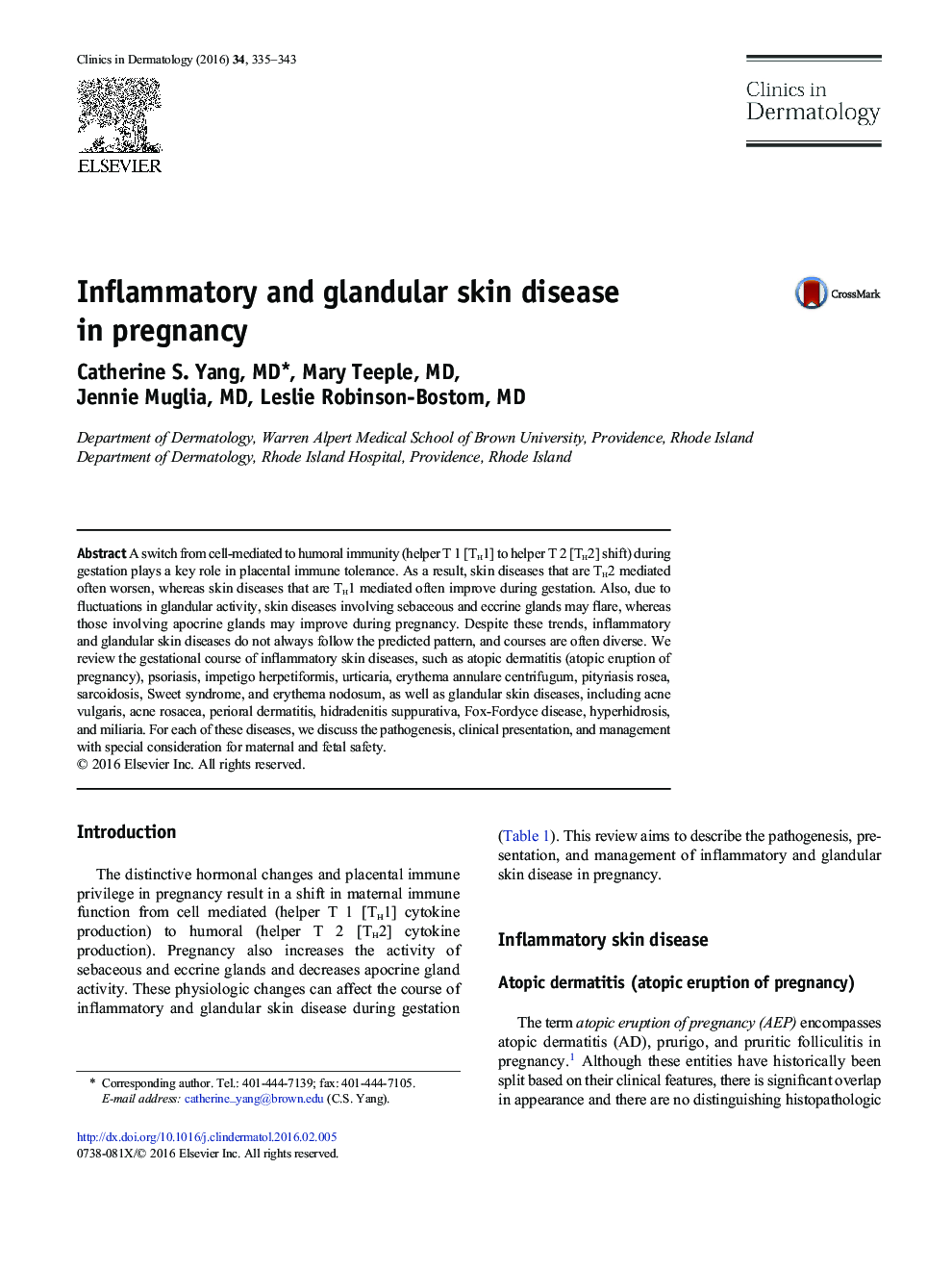| Article ID | Journal | Published Year | Pages | File Type |
|---|---|---|---|---|
| 3193973 | Clinics in Dermatology | 2016 | 9 Pages |
A switch from cell-mediated to humoral immunity (helper T 1 [Th1] to helper T 2 [Th2] shift) during gestation plays a key role in placental immune tolerance. As a result, skin diseases that are Th2 mediated often worsen, whereas skin diseases that are Th1 mediated often improve during gestation. Also, due to fluctuations in glandular activity, skin diseases involving sebaceous and eccrine glands may flare, whereas those involving apocrine glands may improve during pregnancy. Despite these trends, inflammatory and glandular skin diseases do not always follow the predicted pattern, and courses are often diverse. We review the gestational course of inflammatory skin diseases, such as atopic dermatitis (atopic eruption of pregnancy), psoriasis, impetigo herpetiformis, urticaria, erythema annulare centrifugum, pityriasis rosea, sarcoidosis, Sweet syndrome, and erythema nodosum, as well as glandular skin diseases, including acne vulgaris, acne rosacea, perioral dermatitis, hidradenitis suppurativa, Fox-Fordyce disease, hyperhidrosis, and miliaria. For each of these diseases, we discuss the pathogenesis, clinical presentation, and management with special consideration for maternal and fetal safety.
